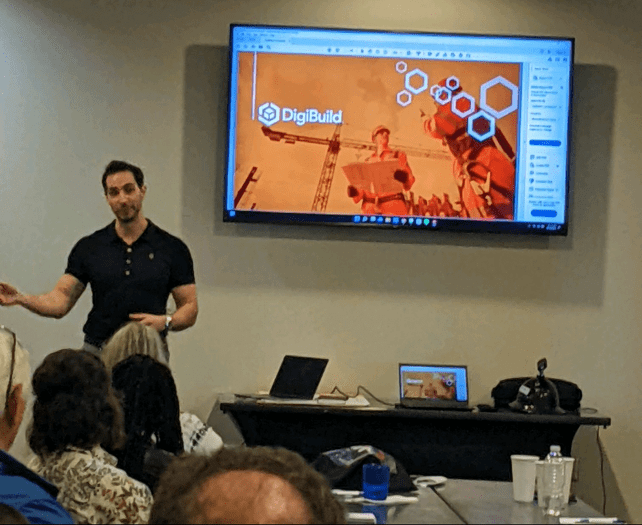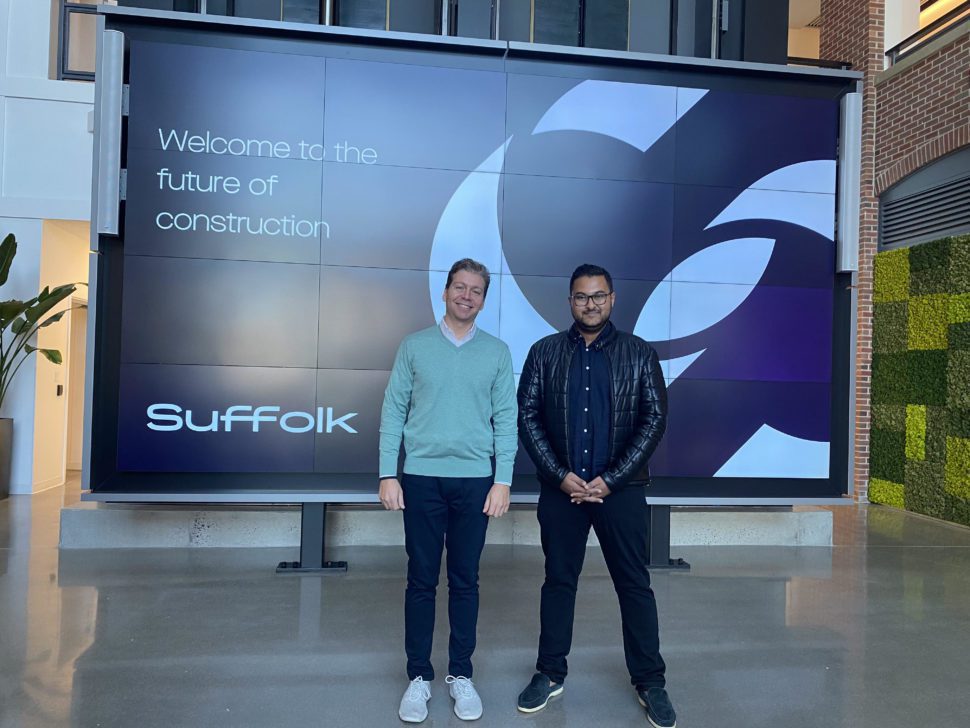By Riley Kaminer
There may be no topic more top of mind for South Floridians than housing. On the one hand, it unites us: everyone has to live somewhere, and rising prices do affect all Miamians, albeit to varying degrees. On the other, it divides us: creating financial winners and losers through the constant churn of real estate properties.
Increasingly, South Florida is becoming a hub for proptech, or tech-powered tools bringing innovation to the world of real estate, with startups moving here, launching here, or growing here.
Let’s dive into the top 4 trends in South Florida’s proptech space.
🏗️ Construction tech enables companies to build more efficiently and effectively
Let’s start from the ground up.
The construction industry makes up over 4% of US GDP, while building materials and construction account for 11% of CO2 emissions globally. It’s a sector ripe for tech innovation, with 43% of CIOs in the space reporting to KPMG that they expect to increase their technology spend. And Miami startups are pioneering the way construction companies operate, bringing efficiencies and expanding their impact at scale.
In July, DigiBuild landed a $4 million seed round for their blockchain-based platform that digitizes construction processes. The startup’s main product, DigiProcure, is a material management and procurement tool that automates administrative processes for contractors. DigiBuild’s platform enables users to search, filter, and compare various aspects of a project’s timeline. The idea is that these advanced data insights will help reduce waste and fraud.

Patrick Murphy, the construction executive turned former US congressman, is building Togal.AI, an AI-powered platform that streamlines the planning process for construction projects. The Togal.AI team won $420,000 at the 2022 eMerge Americas Startup Competition, with Shark Tank judge Kevin O’Leary singing the startup’s praises. Togal.AI focuses on the estimating process, using AI to help humans more effectively determine the cost of various elements of the construction process and manage bids with subcontractors.
Similarly, Deepblocks aims to use AI to revolutionize real estate development by helping to drive down costs of construction and enable better cities of the future. Their SaaS platform enables real estate developers to quickly evaluate potential projects, leveraging real-time financial data alongside local building regulations. And from an environmental perspective, startup Kind Designs is constructing Living Seawalls to help combat the effects of climate change.
🏦 Real estate financing in focus
Of course, financing plays a critical role in the construction process. That’s why Miami startup Rigor, which just secured a $3.5 million seed round, is building a blockchain-based construction lending platform. Through Rigor, lenders can find and fund construction projects. Equally, Flexbase‘s co-founders Zaid Rahman and Hadi Solh [pictured above] are focused on helping construction companies gain access to capital. The startup provides a business credit card that enables construction companies to access up to 60 days of interest-free financing.
But fintech’s intersection with proptech goes far beyond construction. It’s also meaningful for investors, as evidenced by Lendai. The Israeli born startup, which continues to grow its Miami footprint, enables foreign borrowers investing in non-residential US real estate properties the ability to efficiently and quickly access financing and competitive rates using its AI-based underwriting platform.
Meanwhile, DoorLoop is making it easier for property managers and management companies to collect rent, manage properties, screen potential tenants, and more. The startup raised a $20 million Series A, bringing their total funding to $30 million.

Last year, Bungalow made its HQ home in Miami’s Wynwood. The startup offers a full-service tech platform for renters, with a focus on paying rent and managing leases. Meanwhile, Belong, which also relocated from the Bay Area last year, offers a one-stop-shop for property management, including a pathway for renters to save for home ownership.
Propy’s NFT-powered home purchasing platform is making home buying more secure and liquid, using the blockchain and smart contracts. Digital-first real estate platform Richr launched a new product, Richr Money, to give home sellers an easier way to invest the money they made on their sale.

In 2023, we’re likely to learn more about Adam Neumann’s plan to rethink the residential rental market. For Flow, his Miami-based crypto-focused proptech company that is still only a landing page, he raised $350M from a16z in August. It was our region’s second largest venture deal last year and Flow is already a unicorn.
⛱️ Platforms serve a growing short-term rentals sector
Tourists can’t get enough of the fun in the sun in Miami, and proptech companies are making it easier to serve visitors’ seemingly insatiable appetite for short-term rental accommodations.
Getaway, founded by two Bungalow alumni, raised $4.4 million for its platform, which allows users to invest in a short-term rental real estate property starting with as little as $100. One of their first two homes is in Little Havana. Here, which has a similar offering, raised $5 million to expand its platform last summer.

There’s yet another way to get in on the financial upside of real estate without having to own property. Meet BLCK, an investment marketplace where users make passive income by bidding on long-term leases for pre-approved short-term rental properties.
Is one home not enough? If not, proptech unicorn Pacaso can help you find the perfect second home to co-own. Drawn by Miami’s dreamy waterfront homes, the startup has expanded to the Miami area.
🔮 Don’t forget about the metaverse!
Who said real estate has to be, well, real? You can own a digital slice of paradise through Miami startup SuperWorld. The web3 company has divided the surface of the earth into 64 billion virtual parcels of land that its users can purchase for as low as .1 ETH (currently around $150). Virtual landowners – or super citizens, as the startup calls them – then have the right to benefit from any of the monetization that happens on their property, such as NFTs that are placed there.
What’s more, Miami startup YUPIX is bringing the high-end real estate game into the 21st century by building immersive virtual experiences for real estate buyers, which they call “meta-reality tours.” The startup partnered with nationwide developer Property Markets Group to help market their E11EVEN Hotel & Residences. Over five months, YUPIX’s virtual tours led to $700 million generated in sales for E11EVEN.

READ MORE ON REFRESH MIAMI:
- Get ready for Getaway: Real estate investing you can actually enjoy
- YUPIX partners with E11EVEN to give meta-reality tours of luxury residences
- Here raises $5M to expand vacation rental investment platform
- Proptech startup Bungalow makes its HQ home in Miami’s Wynwood
- BLCK aims to help people make money hosting short-term rentals – without owning property
- Togal.AI lands top prize at eMerge, enabling growth of construction planning platform
- DigiBuild secures $4M seed round for blockchain-based construction management platform
- Meet one of South Florida’s fastest-growing companies, unlocking Amazon fulfillment at scale - April 29, 2024
- Mexico-born venue marketplace Scouter lands in Miami to plot US expansion - April 25, 2024
- DigiBuild sets sight on global expansion, growth of construction procurement platform - April 24, 2024





